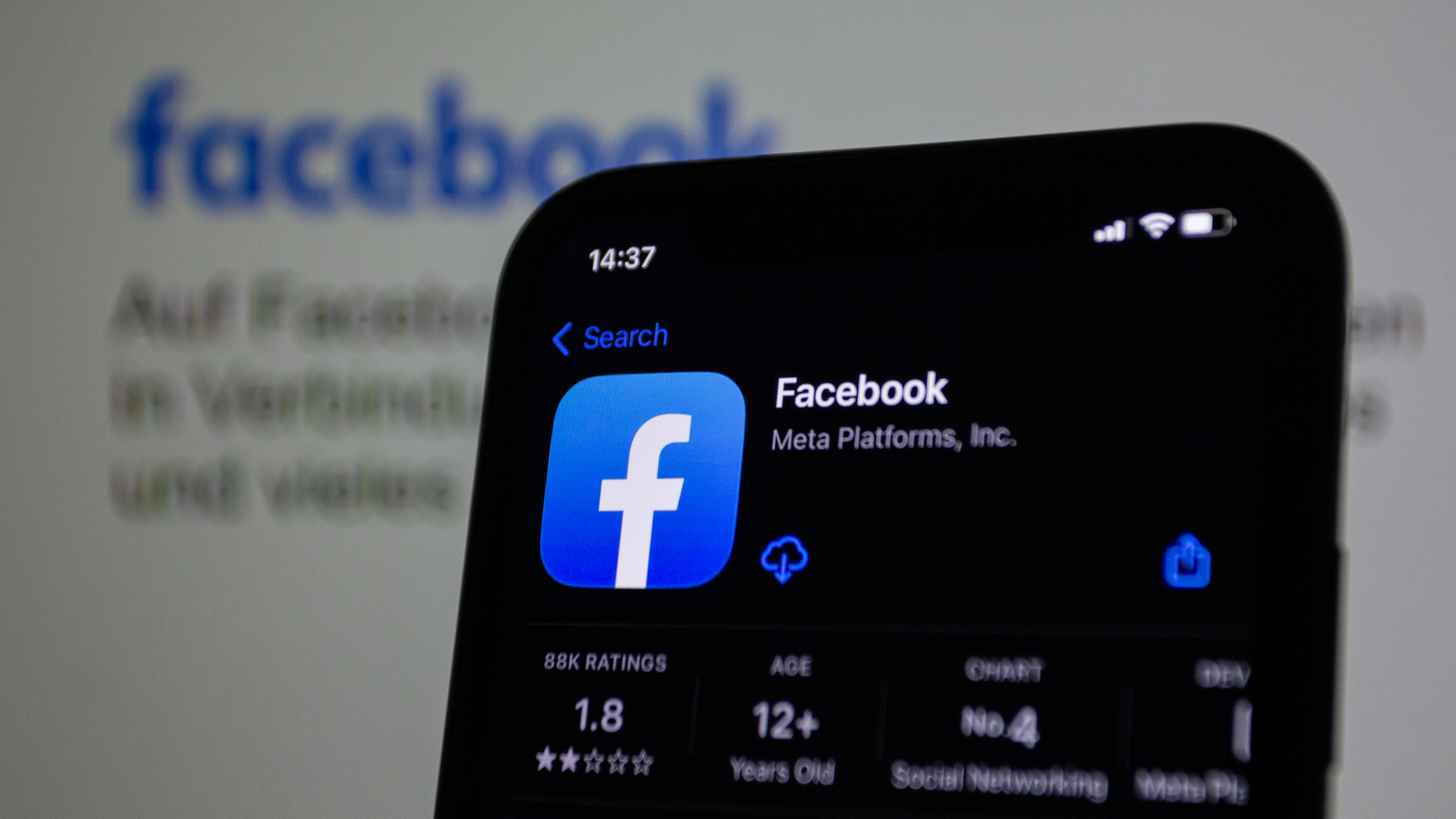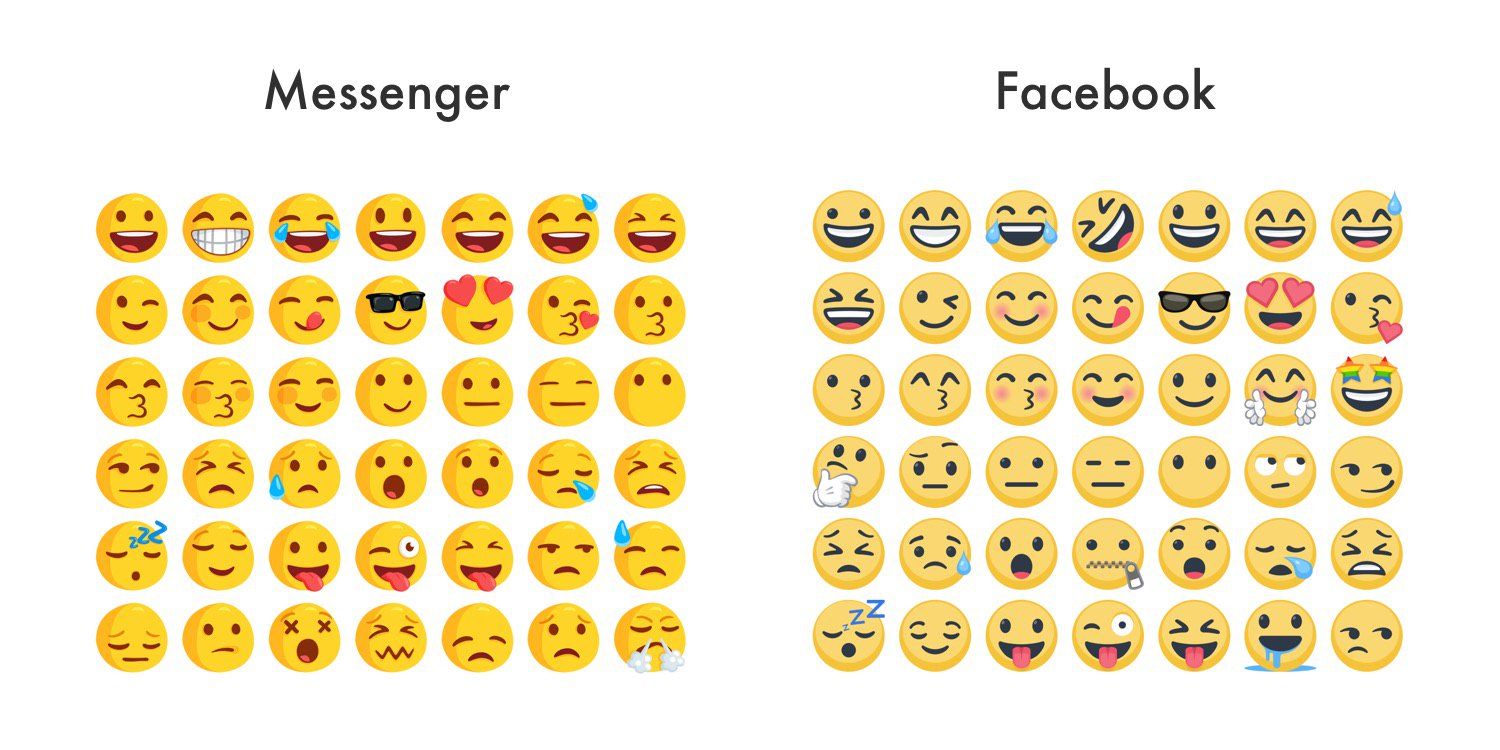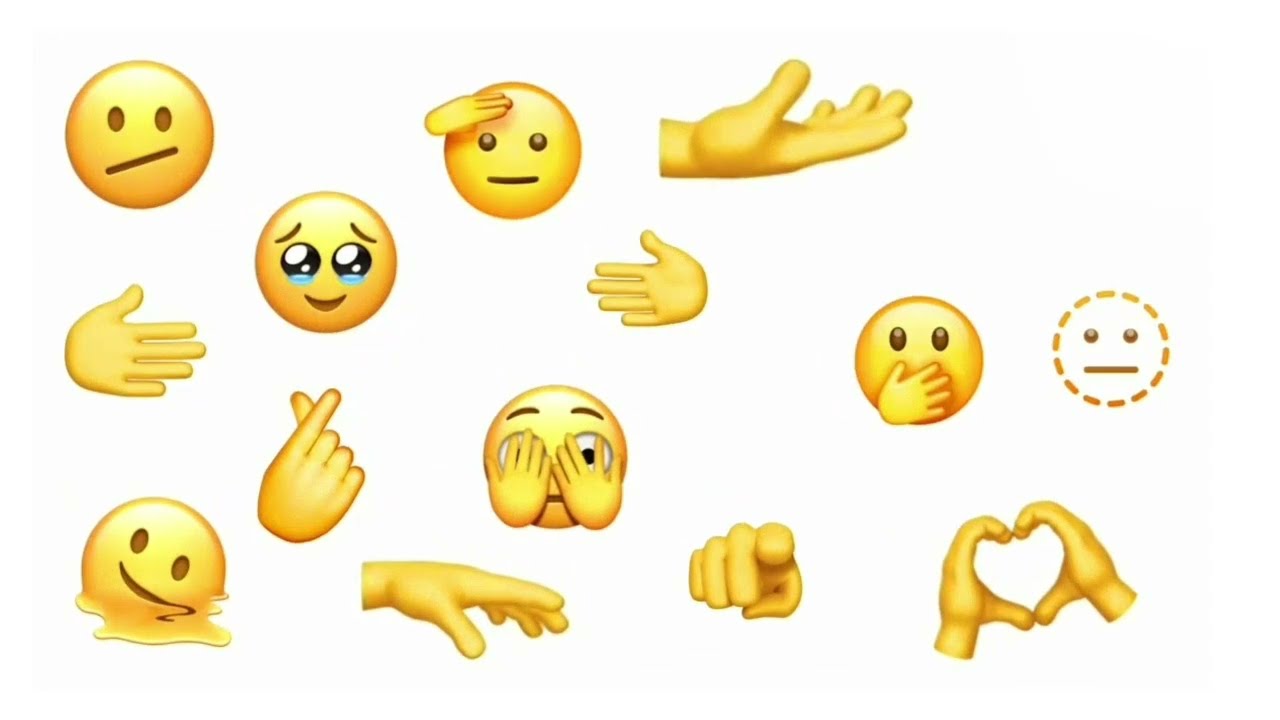In the ever-evolving world of digital communication, emojis have emerged as a powerful tool for expression. These small icons, consisting of a variety of facial expressions, objects, and activities, have transformed the way we communicate online. Among the myriad of platforms that have embraced emojis, Facebook stands out as one of the pioneers, having introduced them as early as 2010. Since then, emojis have become an integral part of the Facebook experience, adding a layer of expressiveness and nuance to our interactions. In this article, we will explore the impact of emojis on Facebook, examining how they have revolutionized the way we communicate on the platform.
1. The Journey of Emojis on Facebook
Introduction of Emojis on Facebook
Emojis were first introduced on Facebook in 2010, with the platform rolling out a limited selection of emoticons for users to incorporate into their posts and comments. These initial emojis included standard faces such as “😊” for happiness and “😢” for sadness, as well as a few other symbols like “❤️” for love and “😎” for coolness. While these emojis may seem basic compared to the vast library available now, they were groundbreaking at the time. They provided a more visual means of expression on a platform that was largely text-based, adding a new layer of emotion and personality to user interactions.
Expansion of Emoji Library on Facebook
Over the years, Facebook has continuously expanded its emoji library, keeping up with the increasing demand for more diverse and specialized emojis. In 2016, the platform introduced a feature called “Reactions,” which allowed users to respond to posts with a range of emojis, including “😍” for love, “😆” for laughter, and “😮” for surprise. This feature gave users a more nuanced way to respond to posts, allowing them to convey their emotions beyond the traditional “like” button. As of 2021, Facebook boasts an extensive collection of emojis, including over 3,000 icons that cover a wide spectrum of emotions, objects, activities, and concepts.
Evolution of Emojis on Facebook
The design of emojis on Facebook has also undergone significant changes over the years. In 2017, the platform introduced a new set of emojis, featuring a more detailed and 3D-like design. This update aimed to make emojis more realistic and relatable, with facial expressions that better reflected human emotions. Along with this design change, Facebook also made the decision to remove the iconic “blob” emojis and replace them with a more modern and universally recognized style. These changes not only enhanced the visual appeal of emojis but also ensured that they were easily understood by users across different cultures and languages.
2. The Role of Emojis in Communication on Facebook
Improving Clarity and Expressiveness
Emojis have been instrumental in bridging the gap of communication on Facebook. Prior to their introduction, interactions on the platform were mainly text-based, leaving room for ambiguity and misinterpretation. With emojis, users can now express themselves more effectively, adding emotion and tone to their words. For instance, a simple “I love you 😍” carries a different weight than just “I love you.” This added layer of expressiveness allows users to convey their intended meaning with greater clarity, reducing the chances of misunderstandings.
Universal Language
One of the most significant impacts of emojis on Facebook is their ability to transcend language barriers. As emojis are universally understood, they provide a common ground for communication among users from different linguistic backgrounds. A study conducted at the University of Edinburgh found that emojis played a crucial role in improving communication and building relationships between users who spoke different languages. They acted as a form of visual shorthand, allowing users to express themselves in a more accessible and easily understandable manner.
Adding Humor and Personality
Emojis have also played a significant role in adding humor and personality to online interactions. With the use of emojis, users can convey sarcasm, irony, or playfulness in a way that would be difficult to express through text alone. This has helped foster a more light-hearted and casual atmosphere on Facebook, making it easier for users to connect with one another and build relationships. Moreover, emojis have become an integral part of meme culture, with many memes relying on a combination of text and emojis to create a humorous effect.
3. The Meaning Behind Emojis on Facebook
The Importance of Context
With over 3,000 emojis available on Facebook, it can be challenging to keep track of their meanings and intended usage. However, like any language, the meaning of emojis is not set in stone and can vary depending on the context in which they are used. For example, while the “🙏” emoji may typically represent prayer or gratitude, it can also be used sarcastically to convey a sense of annoyance or frustration. Therefore, it is essential to consider the context before interpreting the meaning behind an emoji.
Cultural Differences
Another factor that influences the meaning of emojis is cultural differences. While some emojis may carry a universally understood meaning, others may have different connotations in different cultures. For instance, the “🤙” emoji, which represents the sign for “call me,” can also be seen as offensive in some countries. Hence, it is crucial to be mindful of cultural sensitivities when using emojis in a global platform like Facebook.
Personal Preferences
Ultimately, the meaning behind emojis on Facebook is also influenced by personal preferences and individual interpretation. As emojis become more integrated into our everyday communication, they take on a more personalized meaning for each user. For example, one person may use the “🍕” emoji to represent their love for pizza, while another may use it to signify a fun night out with friends. This personalization adds depth and individuality to our interactions, making them more meaningful and personal.
4. The Impact of Emojis on Business and Marketing
Connecting with Customers
The use of emojis on Facebook has also had a significant impact on businesses and marketing strategies. With the rise of social media, companies have turned to platforms like Facebook to connect with their customers and promote their products or services. Emojis have become an essential tool in this process, allowing businesses to communicate with their audience in a more engaging and relatable manner. By using emojis, businesses can add emotion and personality to their messages, making them more appealing to their target market.
Brand Building
Emojis have also played a crucial role in brand building on Facebook. Brands that incorporate emojis into their communication are seen as more fun, modern, and approachable. They help create a more positive image and foster a sense of connection with their audience. Moreover, emojis can also be used as part of a brand’s visual identity, with some companies creating their own customized emojis to align with their branding strategy.
Marketing Strategies
The use of emojis in marketing campaigns has also been proven to yield positive results. A study by HubSpot found that tweets with emojis received 25% more engagement compared to those without emojis. Similarly, Facebook posts with emojis generated higher reach and engagement than those without emojis. This is because emojis catch the eye, evoke emotions, and make content more memorable. Hence, incorporating emojis into marketing strategies can help businesses connect with their audience and achieve their marketing goals.
5. The Dark Side of Emojis on Facebook
Misuse and Misinterpretation
While emojis have undoubtedly added value to communication on Facebook, they have also been misused and misinterpreted. In some cases, the use of emojis has led to misunderstandings, causing conflicts and even legal issues. For example, in 2015, a teenager from Brooklyn was arrested for making threats on Facebook using the “🔫” emoji. The authorities interpreted this as a real threat, leading to the arrest of the individual. Similarly, the use of certain emojis, such as the eggplant or peach, can be seen as sexual innuendos, which may not always be the intended meaning.
Bullying and Harassment
Emojis have also been used as a tool for online bullying and harassment. With the rise of social media, cyberbullying has become a pervasive issue, and emojis have become one of the weapons used by bullies. In some cases, bullies may use particular emojis to mock or harass their victims, leaving them feeling hurt and humiliated. Moreover, the use of emojis can also make it challenging to identify and take action against cyberbullies, as their meaning can be easily dismissed as a joke or prank.
Stereotypes and Prejudice
Another concern with the use of emojis is the perpetuation of stereotypes and prejudice. While most emojis are designed to be inclusive and representative of different cultures and races, there have been instances where certain emojis have been criticized for being stereotypical or offensive. For instance, the “👳♂️” (man wearing a turban) and “🤵” (man in a tuxedo) emojis have been accused of promoting gender and cultural stereotypes. The continuous evolution of emojis and their meanings must take into account the impact they can have on different communities and cultures.
6. The Future of Emojis on Facebook
Continued Growth and Innovation
The popularity of emojis on Facebook shows no signs of slowing down. As technology evolves, so do emojis. With the increasing use of virtual and augmented reality, it is only a matter of time before we see emojis incorporated into these platforms as well. Facebook has also been continuously adding new emojis to its collection, with the most recent update in 2021 including a melting face emoji and a heart on fire emoji. This constant innovation and expansion ensure that emojis will continue to be an integral part of our online communication.
Integration with Artificial Intelligence
Facebook has also been exploring ways to integrate emojis with artificial intelligence (AI). In 2019, the platform introduced an AI-powered feature that can automatically generate suggested emojis based on the words typed by the user. This not only saves time but also makes it easier for users to find the right emoji to express themselves. In the future, we may see more sophisticated AI features that tailor emojis to individual preferences and behavior.
The Rise of Animated Emojis
While static emojis have been the norm on Facebook, there has been a growing trend towards animated emojis. Platforms like WhatsApp and iMessage have already incorporated animated emojis, and it is only a matter of time before we see them on Facebook as well. Animated emojis provide a richer and more expressive means of communication, making interactions even more engaging and fun. They can also help convey complex emotions and actions in a simplified and entertaining manner.
Conclusion
It is safe to say that emojis have had a significant impact on communication on Facebook. They have transformed the way we express ourselves, connect with others, and even conduct business on the platform. While they may have their drawbacks, the benefits of emojis on Facebook outweigh the negatives. As we continue to rely on digital communication, emojis will only grow in importance, providing us with a more nuanced and intuitive way to express ourselves. So go ahead, add some emojis to your next Facebook post, and let your emotions speak louder than words! 💬



